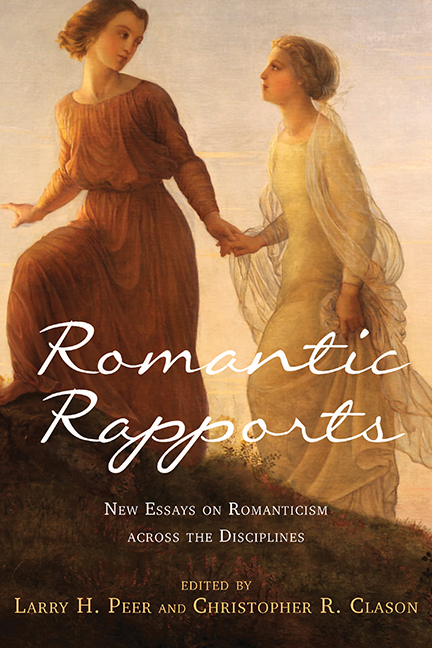Introduction: The Polyvalence of Romanticism
Published online by Cambridge University Press: 30 August 2017
Summary
SITTING IN HIS ROOM among documents and literary artifacts in Russian, English, and Danish, Carl Friedrich Gauss could look on his desk at the paper he published at the age of eighteen solving the seventeen-sided polygon problem, the solution to which had eluded every mathematical genius since Euclid. He was now twenty-two and, between reading Rousseau, Sophocles, and Vergil daily in the original, working out the conceptual framework for imaginary numbers. Within a decade he would be known as the greatest mathematical mind in Western history since Archimedes and Newton, all while consuming daily doses of Sir Walter Scott's novels. He was already beginning a life-long habit of investing his meager funds in relatively safe ventures throughout Europe, a process that led to a considerable fortune by 1845, even though he maintained the Spartan living conditions of his youth throughout his life.
At the same time, far to the East, Russian Emperor Paul, upon being offered the Grand Mastership of the Order of St. John of Jerusalem, recovered his spine and accepted the accolade in spite of Russian Orthodox anger that the Order was under Papal control. Hence his cachet among the other powers of Europe was increased and made him a serious player in European culture. Soon he was on board with Austria, Turkey, and England in an alliance formed to battle Napoleonic hegemony. Thus it was that in April 1799, Russian troops under General Suvarov were sent to join Austrian forces in northern Italy, beginning a campaign that quickly drove the French back across the Alps.
While Suvarov was punishing the French armies on the Adda River at Cassano, Gauss was musing in Braunschweig and Paul was furthering his new reputation through court intrigues in St. Petersburg. Schiller, in Weimar, premiered Wallensteins Tod, reaching the peak of his reputation and development. That day, April 20, 1799, Schiller's great play brought to the stage all the threads of Western culture as they hovered in the winds of early Romanticism.
- Type
- Chapter
- Information
- Romantic RapportsNew Essays on Romanticism across the Disciplines, pp. 1 - 10Publisher: Boydell & BrewerPrint publication year: 2017

